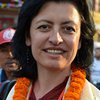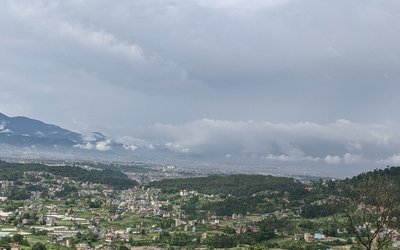Like last year, I am very happy that UNFPA, the United Nations Population Fund, has been able to support this year’s WPD celebration in partnership with the Ministry of Health and Population and the Central Department of Population Studies/TU. This year is more special since we are commemorating the Day with young people of Nepal under the theme “Yuvamalaganigaraun”. This year’s theme is so fitting for Nepal due to the fact that more than one-third (35%) of your population is below the ages of 15 and 57 per cent are between the productive ages of 15-59 years.
Governments and the international community are increasingly conscious of the importance of providing resources and opportunities for all young people to reach their full potential. They recognize that investing in young people and enabling them to exercise their human rights not only benefits young people themselves, but can also help their countries reap a demographic dividend.
We know that healthy, educated, productive and fully engaged young people can help break the cycle of intergenerational poverty. As skilled and informed citizens, they can contribute more fully to their communities and nations.
For millions of young people around the world and in Nepal, puberty — the biological onset of adolescence — brings not only changes to their bodies, but also new vulnerabilities to human rights abuses, particularly in the areas of sexuality, marriage and childbearing. Millions of girls are coerced into unwanted sex or marriage, increasing the risks of unwanted pregnancies, unsafe abortions and sexually transmitted infections, including HIV, as well as death or disability due to childbirth.
Nepal is going through a historic demographic transition: you have the largest productive youth population compared to your dependent populations. As such, you cannot afford to postpone investing in your most promising and innovative of assets – young human capital.
Investing in young people also makes good economic sense. Young people can drive economic growth forward. Unfortunately, this is not currently the case in Nepal as hundreds of young people go abroad daily for foreign employment due to a lack of economic opportunities at home. In the case of investing in adolescent girls and young women, the positive effects go beyond labor force participation and productivity. Improvements in the status of girls and women lead to better maternal health, lower child mortality, and an increase in reinvestment to households and communities.
I think, therefore, that the representation of your young people in the development process is not just a policy issue, not just a political issue, but a major human rights issue.
For young people to be heard properly and to contribute to their optimal levels, they need open channels for communications with decision-makers. Their potential as agents of economic, social and political change must be recognized and invested in.
I wish to congratulate the Government of Nepal for establishing a separate and fully dedicated Ministry of Youth and Sports. It is also wonderful to see the many policies and plans that have and are being put in place to recognize the importance of young people. These include the National Youth Policy 2010, the National Plan of Action on the Holistic Development of Adolescents (2013) and the National Adolescent Health Strategy.
We also hope that the new Health Policy and the Population Policy, both due for endorsement by December 2014, will have a strong youth focus and human rights-based approach. The same goes for the National Health Sector Plan III which is being prepared. UNFPA is very pleased to have been associated with the development of some of these policies and will continue advocating for policies and programmes that invest in adolescents and youth and foster a positive environment for them; promoting their access to comprehensive sexuality education as well as quality sexual and reproductive health services, including family planning; and facilitating their leadership and participation. We are doing this with an emphasis on reaching the poorest, most marginalized and underserved adolescent girls.
On this World Population Day, I commit UNFPA’s full support to all efforts to promote young people’s aspirations and to place young people at the very heart of national and global development efforts. We also want to ensure that young people are seen and can be in the picture.
And … talking about changing the picture… As part of commemorating this year’s theme of “Investing in Young People”, UNFPA has launched a Selfies Campaign. The global campaign is designed to gather millions of selfies from people from all walks of life, in support of UNFPA’s call for youth to be at the heart of the post-2015 development agenda, to be known as Sustainable Development Goals Framework.
Now I would like to take my selfie together with the dignitaries in the dais. I also call on you all to take your selfies. I request you to send your selfies to UNFPA Nepal via Facebook and Twitter and help spread the word so Nepal is represented in this global campaign. Make your voice count in the next UN development agenda!
I conclude by acknowledging the very important initiatives for young people by the Government of Nepal, and urge all young people and policy makers to work together to ensure a sustainable future for all.
Giulia Vallese is a UNFPA Representative in Nepal. Excerpts of her statement delivered at Main Event on ‘Investing in Young People’ on the occasion of World Population Day at City Hall, Kathmandu, on 11 July 2014.

Giulia Vallese
Ms. Vallese is UNFPA Representative to Nepal
- Nepal Is Poised To Reap A Demographic Dividend
- Jul 11, 2016
- Women and girls in Nepal are still suffering from obstetric fistula
- May 23, 2016
- World Population Day 2015More Than Ever Relevant to Nepal
- Jul 11, 2015
- AP Population Conference
- Sep 02, 2013
- AP Population Conference
- Aug 31, 2013














